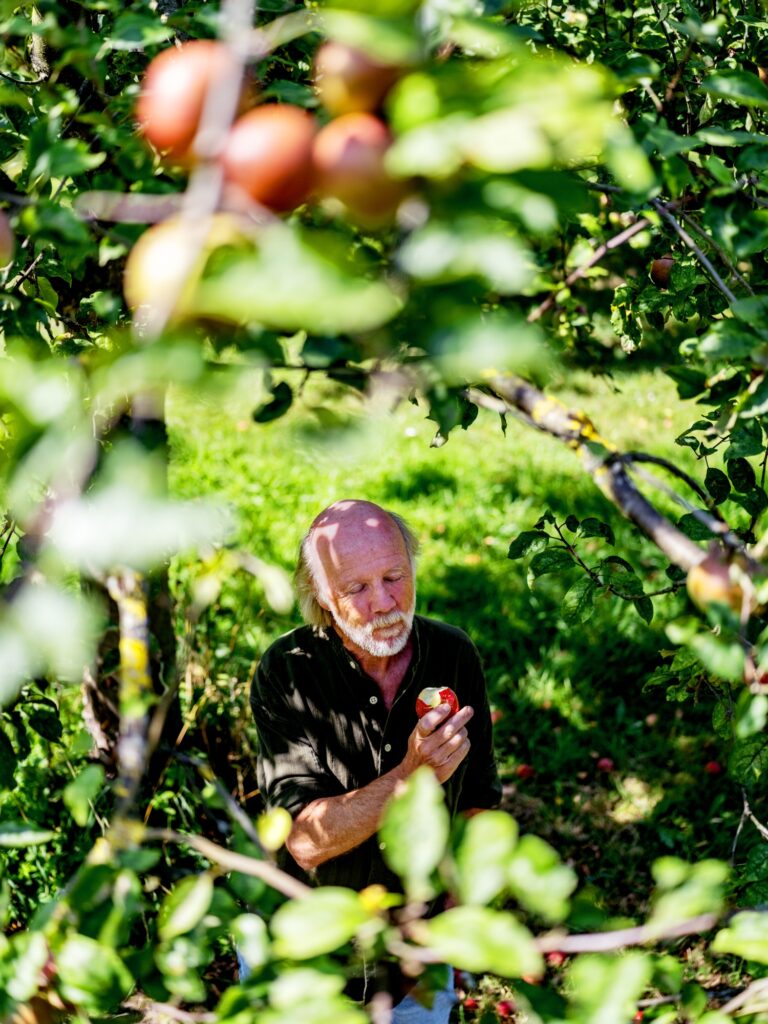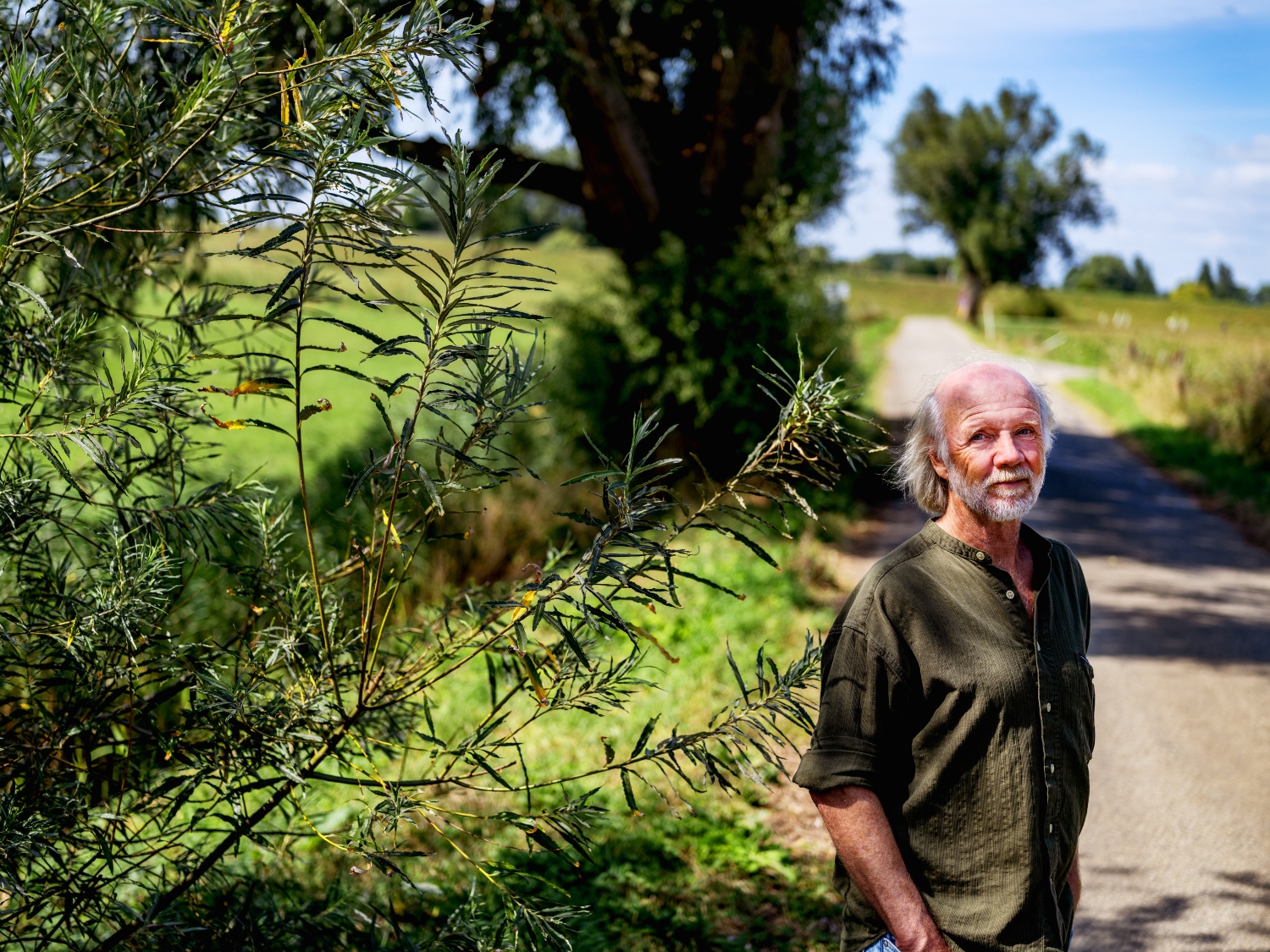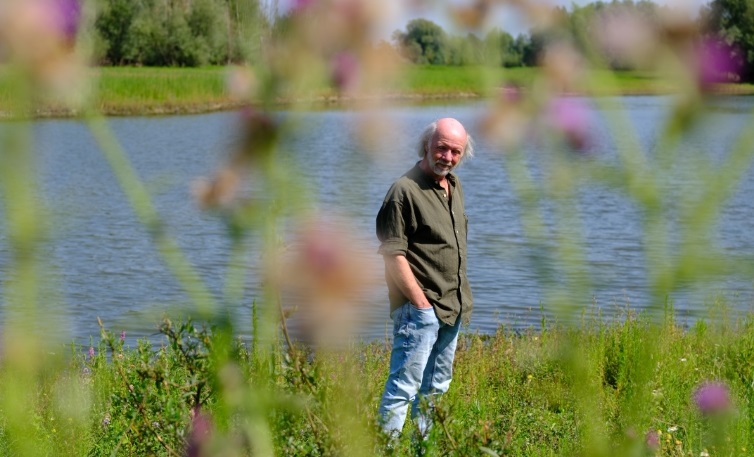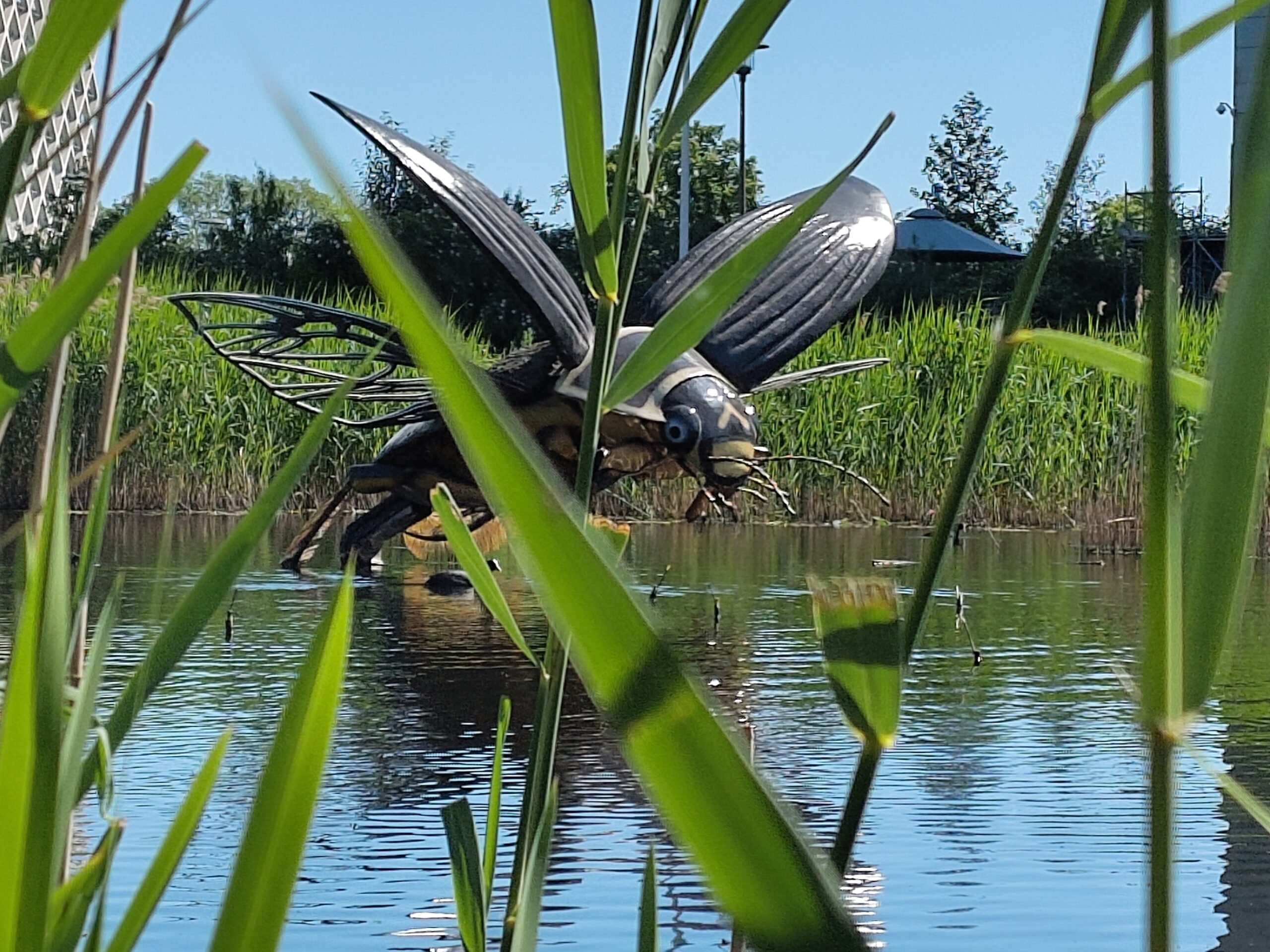A radical change of approach is needed to save the world, claims ecologist and Spinoza prize winner Marten Scheffer in his new book De Kanteling (‘The Turning Point’). He too has reached a turning point as he will be retiring.
His retirement is purely an administrative change, though. His formal appointment will end, but he will carry on working. ‘I get so much pleasure from my work as a scientist and musician,’ explains Scheffer in his ‘garden office’ at his wonderful home in the Betuwe region. ‘It’s a way of life and that doesn’t stop when you turn 67. I am also lucky in that I still have nearly half [one million euros] of my Spinoza prize money left.’ He can simply continue doing what he always did: bringing people together for new collaborations.
It is hardly surprising Scheffer chose ‘The Turning Point’ as the title of his new book. The theory of tipping points (see inset) has been a constant element in his scientific career. His interest in — or perhaps more accurately passion for — complex dynamic systems started when he was a Biology student in Utrecht, where he was taught by Paulien Hogeweg, a bioinformatics pioneer. ‘What was so amazing about her lectures is that almost nobody understood them and yet we were still enthralled. We realized something deep was going on. It was all about tipping points, chaos theory and how the patterns on a giraffe’s hide come about, how phenomena can arise through simple local interactions. Various students of my generation who were taught by her continued in that field and became professors. That is a wise lesson: meaningful education generates a fascination.’
Generic principle
Scheffer’s fascination took shape during his first job, working for the Directorate-General for Public Works, where he was tasked with figuring out how to make cloudy lakes clear again. Whatever they tried, nothing worked. Until Scheffer heard about the idea proposed by the British aquatic ecologist Brian Moss that the cloudy lake was trapped in that state and there was also an alternative, clear state. ‘Hey, I thought, that sounds familiar. And I knew the maths behind it.’ The water could only be flipped back to the clear state by rigorously removing the fish. ‘Later, it turned out that an abrupt switch between two essentially stable states in equilibrium is a generic principle that is applicable in a wide range of complex dynamic systems, including rainforests, coral, financial markets and migraine. It was a huge success.’
In his book De Kanteling, Scheffer applies the theory to the biggest dynamic system we know about: the world today. According to Scheffer, our world is fast approaching a decisive tipping point. The signs are unmistakeable. Social tensions, unrest and instability are increasing around the world and climate change is threatening to destroy the planet. But this destiny is not inevitable, he argues. The world could also tip towards a good Anthropocene. In fact, we have all the ingredients for that outcome.
(Article continues below the photo)

The book reads like a magnum opus, a synthesis of your work as a scientist. Was that the intention?
‘No, but that’s how I see it too in retrospect. My publisher initially asked me to write a new version of my previous book Critical Transitions in Nature and Science. But I haven’t actually been doing much on ecology and the climate since I wrote that book ten years ago.’
Why is nothing happening, and can we do anything about it? That is the question addressed in this book
‘My work has been focused more on people and the question of why we continue to behave one way when it’s so evident that we need to change. Why is nothing happening, and can we do anything about it? That’s the underlying question in this book.’
But the book goes much further, as you are calling for a radical transformation. That is quite activist.
As a scientist, you are used to explaining how things work. I want to go beyond that and make a meaningful contribution. In my opinion, a radical transformation is the only way to force the changes go fast enough. We’ve been talking about how things need to change for so long. There are lots of good intentions and many good things are being done too, but the concentration of CO₂ in the atmosphere is still rising and nature is still in decline. Climate change is speeding up the rate of deterioration as well. The situation is urgent, and things need to change fast.’
The world once it has passed the tipping point is unknowable by definition – we could have a broken society or a glowing future. Death or a bed of roses. Isn’t a tilt like this dangerous?
‘I’m not the one starting the tilt. Social unrest is here already. The tensions are here already. The biggest changes, such as the revolutions in China, Russia and France or the rise of the Nazis in Germany, always happen when a society destabilizes. Those are the occasions when significant opportunities arise. What happens after such a period of instability depends on the available narratives, what is in the air and what resonates with people. At present we’ve got the narratives of Trump and Wilders and the competing story of zero growth. I’m a storyteller. People listen to stories, not facts. I try to tell the story of another alternative and what steps are needed for that. I’m telling a positive story, because people need that. This is an issue for our students too: will things work out in the end and what can they do?’
The main obstacle to change is what you call the ‘chokehold of an invisible hand’. What do you mean by that?
‘The invisible hand is a metaphor used by the Scottish political economist Adam Smith. According to Smith, the free market and price mechanism function without any top-down intervention. Supply and demand are matched thanks to the self-interest of consumers (who want to pay as little as possible for a product) and of producers (who want to sell as much as possible and so keep the product price low). But things can easily go wrong, which stops the market functioning properly. Examples are cartels, lobbying, mass advertising and established parties influencing politicians and public policy. The invisible hand then turns into a chokehold, preventing change.’
Isn’t that inevitable because human nature is so bad?
‘No, on the contrary, it’s a misconception to think people are egotistical or bad. Most people are decent folk, as Rutger Bregman explains so well in his book. The chokehold isn’t because of the bad guys. Nearly everyone thinks they are doing the right thing. That includes the people cutting down rainforests and drilling for oil. Why do they do it? People want to belong to a group and achieve a certain status within that group. In science, you achieve status by publishing articles in Nature and Science. In a company, you achieve status by making a profit and keeping the shareholders satisfied.’
It’s a misconception to think people are egotistical or bad
‘In our society, status is linked to money and material objects. We have become obsessed with striving for things that don’t ultimately make us happy. But that is a very recent development in human history. We didn’t evolve to have material things. Hunter-gatherers don’t have material things. So it doesn’t have to be this way. We evolved to function well in small groups. The biggest challenge for mankind is scaling up from small groups to the global scale. Life could be so much better without having to make any sacrifices. That is the picture I present.’
In the book, you make several radical proposals for speeding up the transformation, including a ban on advertising. How realistic is that?
‘These are thought experiments for when the time is ripe. I present a panorama of conceivable examples. In the past, the function of advertising was to give you information about products, but these days everyone can find that information on the internet. Now, all advertising does is lead to overconsumption. Advertising should be illegal.’
Advertising simply leads to overconsumption. It should be illegal.
And an independently operating global climate organization?
‘Managing the climate is too important to leave to politicians. I’m proposing climate boards, hierarchically organized at the regional, national and international levels, analogous to the water boards in the Netherlands. Even in the Middle Ages, people thought dry feet and sturdy dykes were too important to leave to scheming politicians. The same applies now to the climate.’
Managing the climate is too important to leave to politicians
Billionaires giving away their money?
‘The fact that a small group of ultra-rich people have so much influence is a huge problem. They have taken over markets, governments and the media. That is one aspect of the invisible strangling hand. The solution is that no one should be allowed more than 10 million euros. Of course, most rich people will be opposed to this redistribution of wealth. So we should let them do it themselves, as long as they report back. Accept their power, but introduce transparency in how that power is used. In other words, a kind of United Billionaires rather than the United Nations, which no longer works anyway.’
You are 67. Will you live to see that transformation?
‘Yes, I think I’ll see quite a lot of the transition. The instability in the world is accelerating, there is a growing sense of urgency and a realization that things need to change. I believe a lot is going to happen in the next few decades.’
Nobel Prize
If there was such a thing as a Nobel Prize for Ecology, the name of Marten Scheffer (Amsterdam, 1958) would be among the list of prime candidates. At least, that’s what ChatGPT says, summarizing the information on the internet. But there is no such prize. Scheffer did get awarded the Spinoza Prize in 2009. He is the only Wageningen scientist still working who has received that prize. Scheffer graduated with distinction in Biology at Utrecht in 1985 and received his PhD there in 1992. After several other jobs, he became professor of Aquatic Ecology & Water Quality Management at Wageningen in 1998. He is not only an eminent scientist but also a talented musician, playing the violin, mandolin and guitar among other instruments.. The artwork Must Leave in the Orion pond was commissioned by him.
Tipping point
Gradual changes can harm the resilience of a stable system to such an extent that it becomes vulnerable. A slight disturbance can then be all that is needed to make it flip to a completely new state. That process can be charted using relatively simple maths. The tipping point is inherently unpredictable, but signs that a system is getting close to such a critical point are quantifiable: the system takes longer and longer to regain its equilibrium after a disturbance.

 Photo Duncan de Fey
Photo Duncan de Fey 

